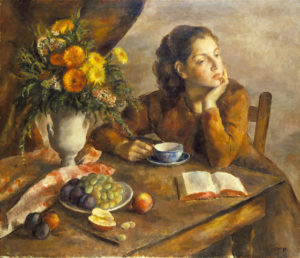 We often turn to writers to glean wisdom about the world. J.D. Salinger’s The Catcher in the Rye has been a kind of bible to many troubled teens, as Margaret Mitchell’s Gone With the Wind has been to women struggling to be strong, or Joan Didion’s The Year of Magical Thinking has been to people suffering grief.
We often turn to writers to glean wisdom about the world. J.D. Salinger’s The Catcher in the Rye has been a kind of bible to many troubled teens, as Margaret Mitchell’s Gone With the Wind has been to women struggling to be strong, or Joan Didion’s The Year of Magical Thinking has been to people suffering grief.
So, when you write, do you need to be wise?
Asking yourself to “be wise” is like trying to relax when you’re terribly anxious and someone says, “Just relax.” It’s not something you can turn on and off like heating a kettle of water. If you really want to relax, you’ll take specific steps to get there, such as breathing deeply or taking a run or listening to Enya.
Similarly, there are practical steps you can take to bring a modicum of wisdom to your stories.
Your first priority, always, is to bring us good characters and intriguing scenarios. It all starts there. But from those characters and scenarios, look for the interesting questions you may find within. Questions that may inform your story. Is love too blind? Why do we push people away? When is it best to give up?
Don’t feel any pressure to draw brilliant conclusions. As Anton Chekhov said, “The role of the artist is to ask questions, not answer them.”
Think of yourself more as a sharp observer than a philosopher. As E.B. White said, “As a writing man, or secretary, I have always felt charged with the safekeeping of all unexpected items of worldly or unworldly enchantment, as though I might be held personally responsible if even a small one were to be lost.”
An example. The other day I noticed an elderly man on a bus. Dapper, dressed in muted grays with a maroon tie. He was alone, reading a newspaper in Arabic, but he exuded a big happiness. I was reminded of an article that put forth the idea that elderly people are often happier than younger ones because they don’t have the same kind of expectations that plague many of us. I found that interesting, and sometimes true. But then there’s another side of old age. As my wonderful Aunt Ruth said, “Life is great, but it can have a lousy third act.”
I might be able to pull a story from that previous paragraph that would shimmer with a bit of wisdom, without me being particularly wise. Just from observing and asking questions. (Honestly, how many of us are truly wise?)
Perhaps Mary Oliver says it best in her poem “Sometimes:”
Instructions for living a life:
Pay attention.
Be astonished.
Tell about it.

Alex Steele
President, Gotham Writers Workshop


